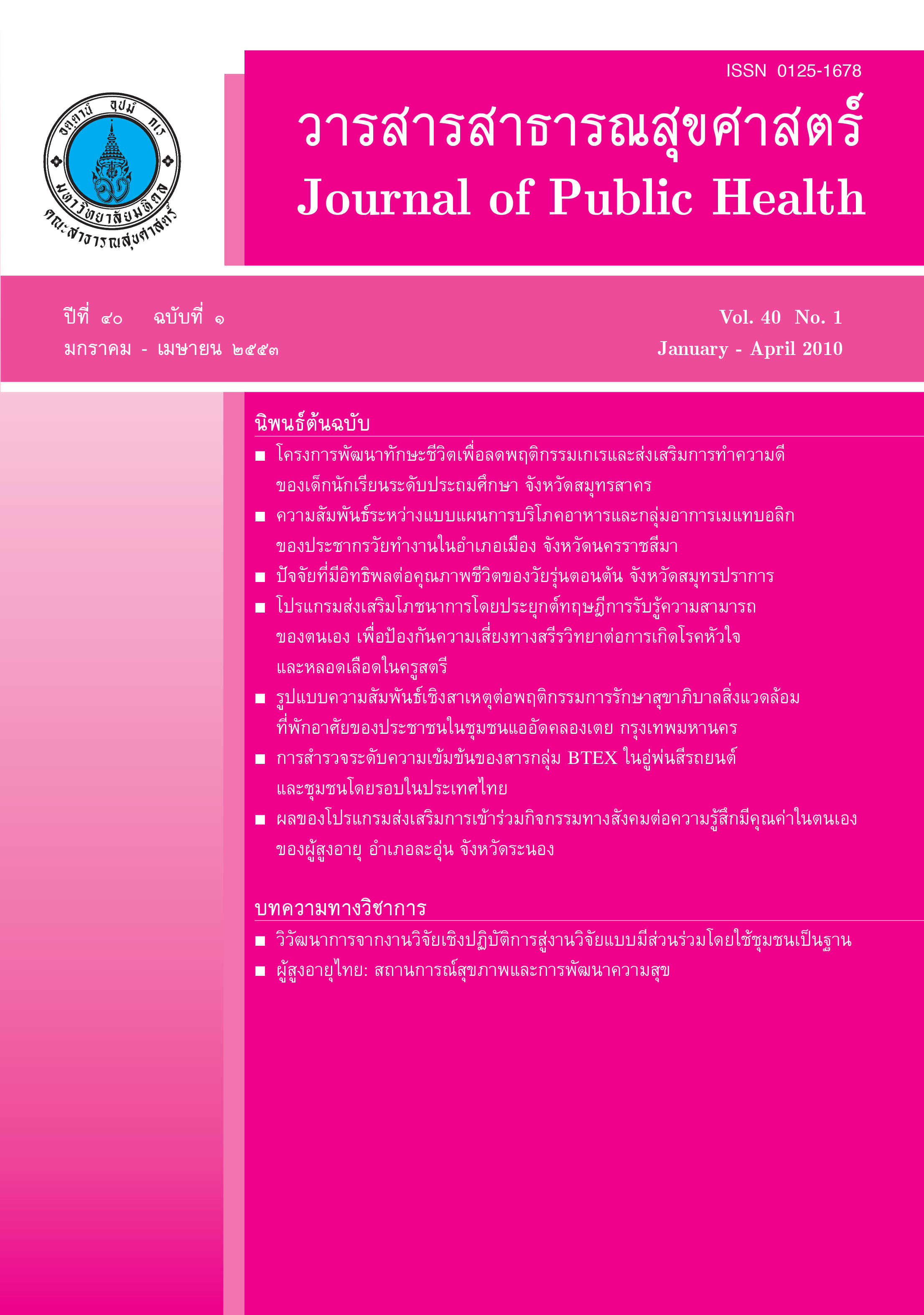ปัจจัยที่มีอิทธิพลต่อคุณภาพชีวิตของวัยรุ่นตอนต้น จังหวัดสมุทรปราการ
Keywords:
Quality of life, adolescent, emotional quotient, family relationship, parental style, คุณภาพชีวิต, วัยรุ่น, ความฉลาดทางอารมณ์, สัมพันธ์ภาพในครอบครัว, รูปแบบการอบรมเลี้ยงดูAbstract
ABSTRACT
A Cross Sectional Survey study was conducted aiming at identifying influencing factors for predicting quality of life among early adolescents in Samutprakarn Province. Total 460 adolescences aged between 12-16 years old were selected using multiple stage sampling technique. Data were collected through self-administered questionnaire. Data were analyzed by descriptive statistics, percentage, mean-standard deviation, t-test, one-way ANOVA, Pearson product Moment Correlation Coefficient and Stepwise multiple regression analysis. The results revealed that 56.3% of the sample had good quality of life whereas 43.7% maintained quality of life at moderate level. Factors with statistical significance (p-value < 0.05) associated with early adolescence quality of life were consisted of GPA, emotional quotient, father’s and mather’s educational level, family income, democratic parental style, family relationship, community environment, acceptance from teacher and friends, and participation in school and community activities. Whereas emotional quotient, good family relationship, acceptance from teacher and friends, high GPA, positive community environment, democratic parental style, and participation in school and a community activities altogether are able to predict adolescents’ quality of life correctly 49.1%. (Adjusted R2 = 0.491, p-value < 0.003) Findings from this study recommended that public health institutions should provide knowledge on parental preparedness and child emotional quotient development to promote their quality of life.
Key words: Quality of life, adolescent, emotional quotient, family relationship, parental style
Downloads
Issue
Section
License
Creative Commons License CC-BY-ND


